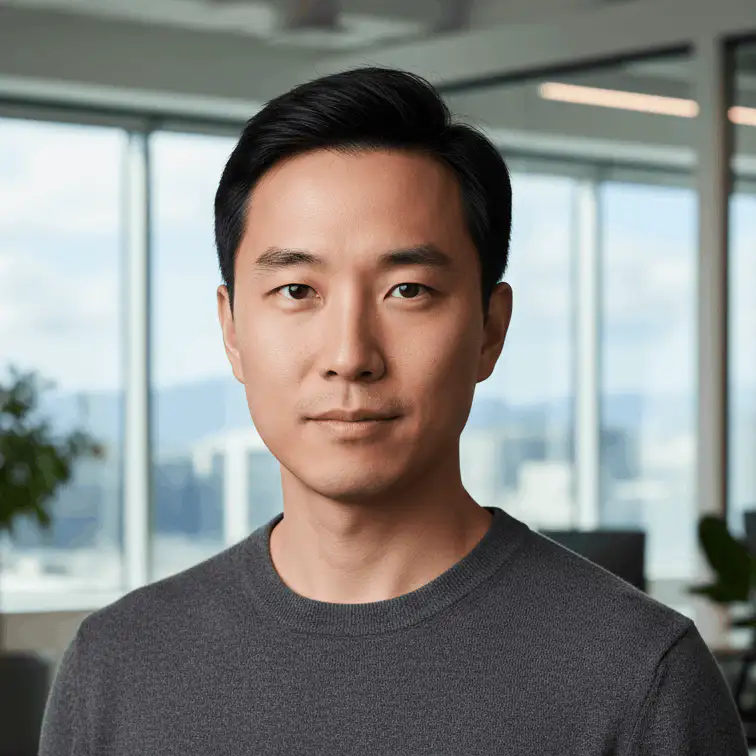Age
Formative Years
First Computer (Aug 01, 2001 - May 04, 2005)
The "Little Tyrant" Arrives. My parents brought home our first family computer when I was eight. It was a bulky, beige machine, but to me, it was a gateway to another universe. I spent hours exploring its operating system, breaking and fixing things, and playing simple games. It was less a tool and more a puzzle box that I was determined to solve.
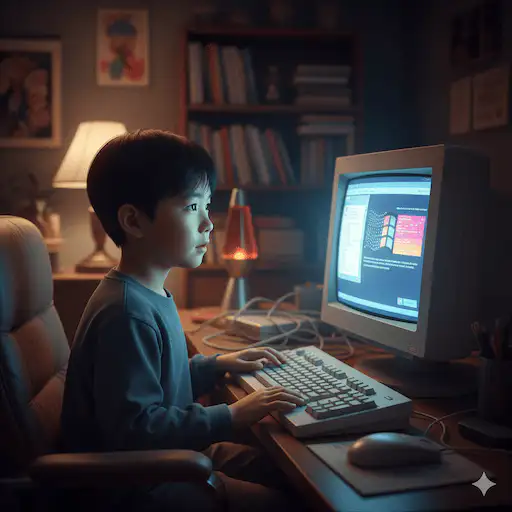
This machine sparked my curiosity for how things worked. My father, an engineer himself, encouraged me, buying me books on programming basics. My first "program" was a simple script that made text scroll across the screen. It was a small, insignificant thing, but it felt like I had created magic. That feeling has never really left me.
Grandfather's Go Lessons (Jul 01, 2003 - Jul 01, 2010)
Strategy on the Weiqi Board. Every weekend, I would visit my grandfather's apartment, and we would play Go (Weiqi). He was a patient teacher, and the lessons were about much more than the game.
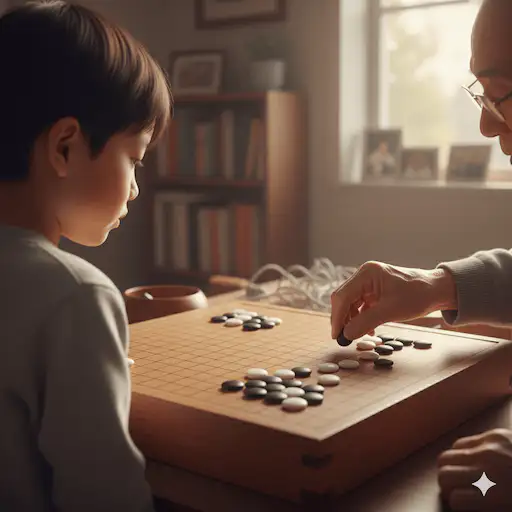
Key Lessons from the Board
Think ahead: Always anticipate the next three moves.
Patience: The board reveals itself slowly.
Sacrifice: Sometimes, you must give up a small piece to win a larger battle.
I didn't realize it then, but these lessons in logic and long-term strategy were profoundly influential. The patterns, the patience, the quiet intensity of the game—it all mirrored the challenges I would later face in algorithm design and system architecture.
High School Olympiad (Apr 01, 2010)
National Informatics Competition. My high school physics teacher encouraged me to enter the National Olympiad in Informatics. I spent months training, solving complex algorithmic problems until the early hours of the morning. The competition itself was a grueling, two-day event against the brightest students in the country.
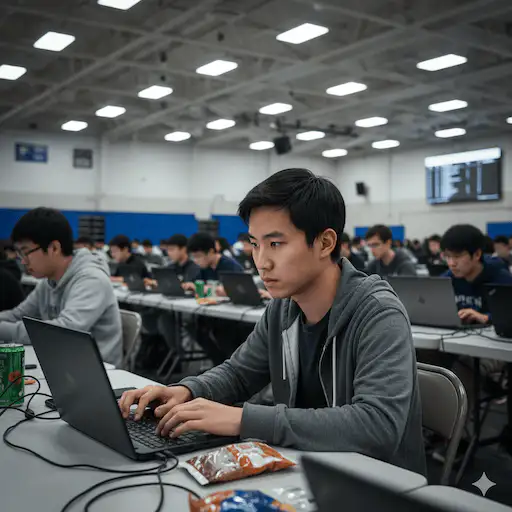
I didn't win first place—I came in third—but the experience was transformative. It was my first taste of a high-stakes, competitive environment where intellect and performance were everything. It validated my passion and gave me the confidence to pursue computer science at a top university.
Education
Shanghai Jiao Tong University (Sep 01, 2011 - Jun 14, 2015)
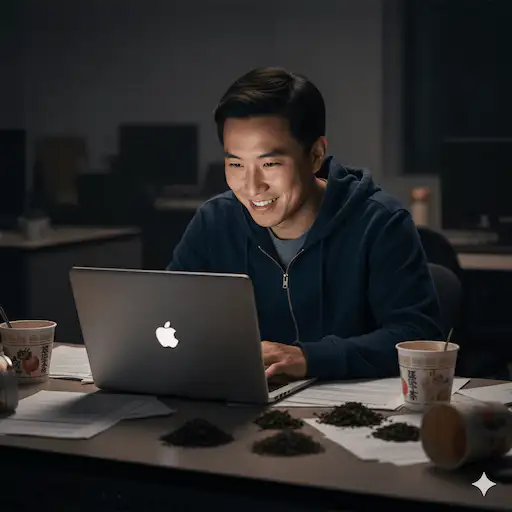
B.Sc. in Computer Science. This was where the foundation was laid. The first couple of years were a blur of foundational theory, but everything clicked during my final-year project. Our team built a rudimentary image recognition model to identify different types of tea leaves—a nod to our culture. Seeing our algorithm successfully classify a Tie Guan Yin from a Da Hong Pao was a moment of pure magic.
That project was the spark. It wasn't just about code; it was about creating something that could perceive and understand the world in a new way. I spent countless nights in the lab, fueled by instant noodles and a growing obsession with neural networks. It was a grueling but incredibly rewarding period that defined my academic and professional trajectory.
Stanford University (Sep 10, 2015 - Jun 13, 2017)
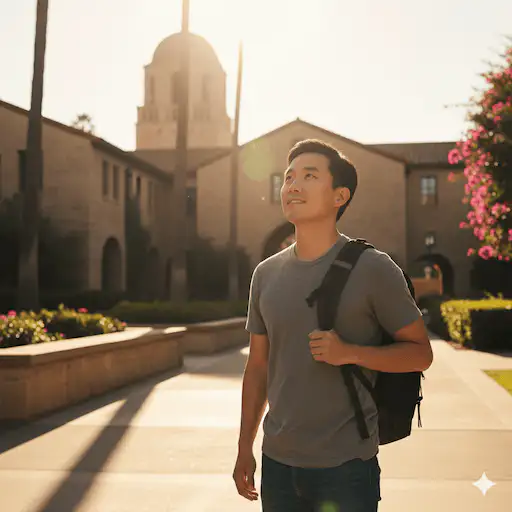
M.Sc. in Artificial Intelligence. Landing at Stanford was a dream come true, but the first few months were humbling. I was surrounded by brilliant people from all over the world and battled a serious case of imposter syndrome. The pace was relentless, and the concepts were on the absolute cutting edge. My breakthrough came in a reinforcement learning class where, after weeks of failed simulations, my agent finally learned to navigate its environment.
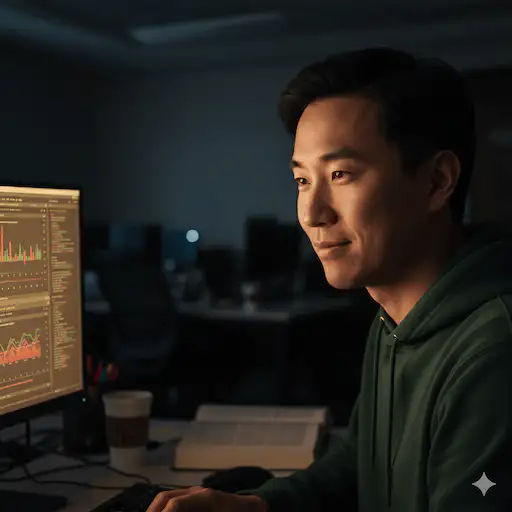
California was a whole new world. I learned to balance intense study sessions with weekend hikes in the hills overlooking the bay. It was a period of profound growth, not just academically, but personally. I learned to be independent, to build a new community from scratch, and to see my own culture from an outside perspective, all while being at the global epicenter of my field.
Career Path
Internship at Synapse Corp (Jun 01, 2016 - Aug 31, 2016)
My First Taste of Silicon Valley. My master's internship was a three-month sprint. I was tasked with a seemingly small project: building a performance analysis tool for the AI team's data queries. It was my first time working with a massive, real-world codebase. I was terrified of breaking something.
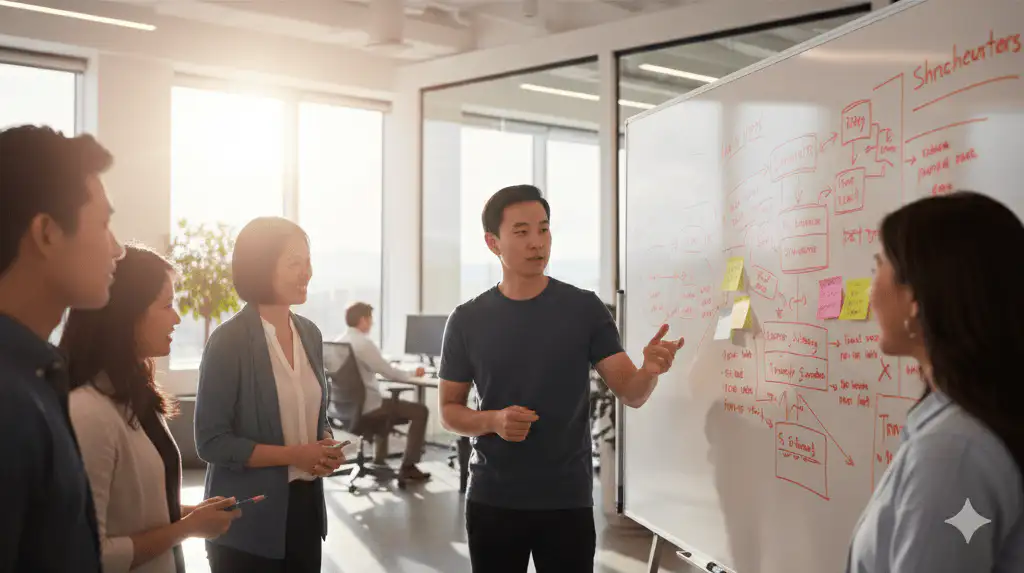
The experience was invaluable. I learned how to navigate a corporate environment, how to ask the right questions, and how to deliver production-quality work. My final presentation to the team led directly to my full-time job offer. I left that summer with a new sense of confidence and a clear goal: to come back.
Software Engineer at Synapse (Jul 25, 2017 - Aug 15, 2020)
Building at Scale. My first full-time role. I was assigned to the team working on the NLP engine for Synapse's virtual assistant. The sheer scale of it was intimidating. One of my first major tasks was to help re-architect a feature to reduce latency by 150 milliseconds. It sounded small, but at our scale, it saved thousands of hours of computing time and made the product feel noticeably snappier for millions of users.
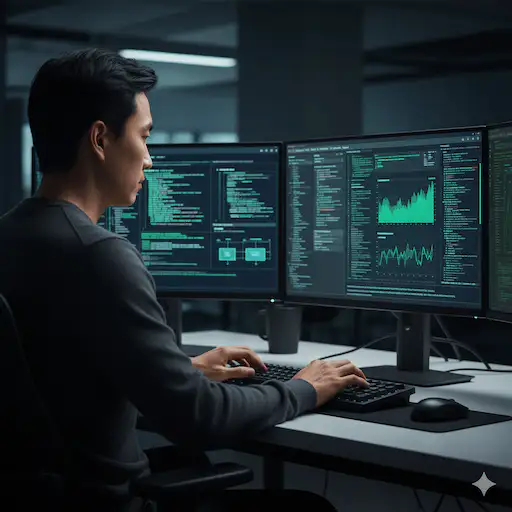
Seeing code I wrote deployed to a global user base for the first time was an indescribable feeling—a mix of terror and pride. This role taught me the difference between academic code and production code: the importance of reliability, testing, and collaboration.
Senior AI Engineer at Synapse (Aug 18, 2020 - now)
From Code to Leadership. The promotion was more than a title change; it was a mindset shift from "how do I build this?" to "what should we build and why?" My role became focused on system design and, more importantly, people. I learned that my success was now measured by the success of my team.

One of my proudest moments was mentoring a junior engineer who was struggling. We worked together for weeks, and seeing her finally present her own component to the entire department with confidence was more rewarding than any code I had ever shipped. Leadership, I'm learning, is about empowering others.
Places I've Lived
Shanghai, China (Jul 15, 1993 - Jun 20, 2015)

My Foundation. My formative years were spent in the electrifying, ever-changing landscape of Shanghai. The city's relentless energy and ambition are a part of my DNA. I remember the smell of street food on my walk home from school, the roar of construction that was the city's constant soundtrack, and the view of the Pudong skyline from the Bund, which always felt like a promise of the future.
Palo Alto, CA (Aug 25, 2015 - Jun 11, 2017)
The Academic Bubble. Living in Palo Alto during my time at Stanford felt like being in a different world. It was quiet, sunny, and intensely focused on the university. Life revolved around the academic calendar. My world was the lab, the library, and the tree-lined streets I'd bike through to get to class. It was a peaceful but demanding bubble, a perfect environment for the deep focus my studies required.
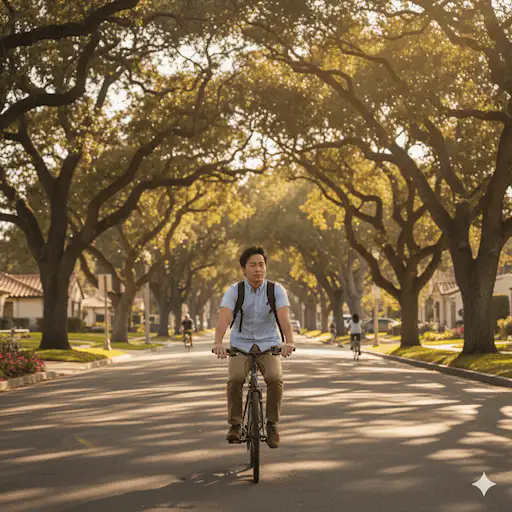
San Francisco, CA (Jul 05, 2017 - now)
My Adopted Home. After graduation, I moved to the city. San Francisco is a city of contrasts—the chaotic energy of the tech scene against the profound tranquility of the fog rolling in over the hills. It's where I became an adult. I found my favorite noodle shop, discovered hiking trails in the Marin Headlands, and built a life for myself. It's a city that tests you, but its beauty and innovative spirit have made it my home.
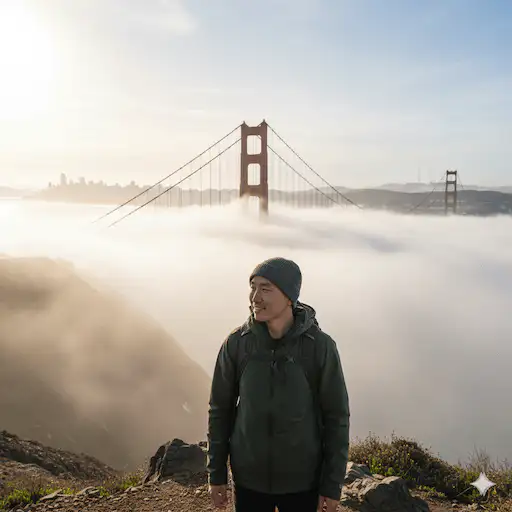
Immigration Journey
Student Visa (F-1) (Jul 17, 2015 - Aug 27, 2015)
The First Step. The interview at the U.S. consulate in Shanghai was nerve-wracking. The F-1 visa was the key that unlocked the door to my Stanford education and everything that followed. Holding that passport with the freshly stamped visa felt like holding a ticket to a new life. It was the beginning of my journey as an immigrant, a path filled with paperwork, uncertainty, and immense opportunity.
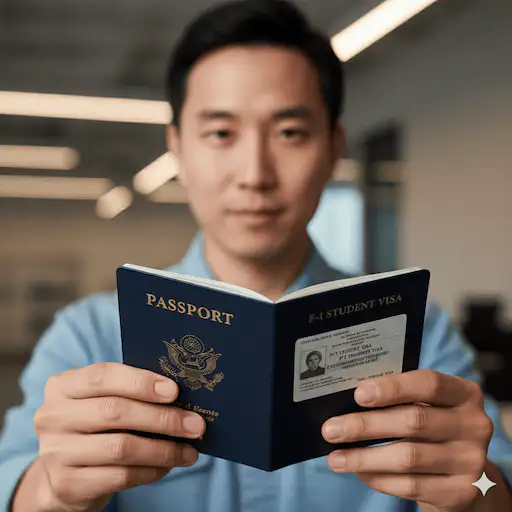
Work Visa (H-1B) (Apr 05, 2017 - Aug 10, 2017)
A Game of Chance. My entire future in the US hinged on a lottery system, a game of chance. I remember the day the results were released, constantly refreshing the immigration portal with my colleagues, our stomachs in knots. The email with the subject line H-1B Registration Selection Notice finally arrived.
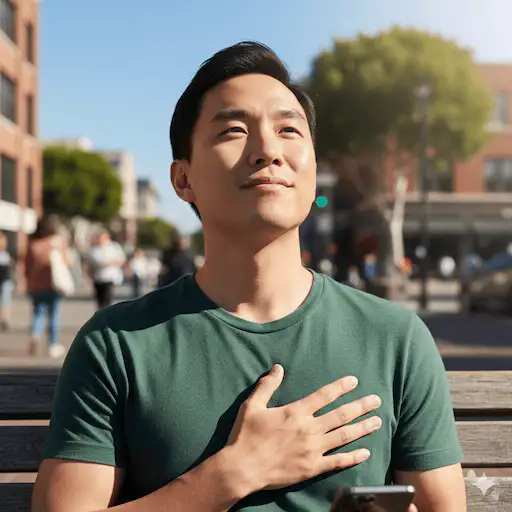
Seeing the word "Selected" was a wave of relief so profound it almost brought me to my knees. It wasn't just a document; it was the permission to continue building the life I had worked so hard for. It meant my journey in Silicon Valley wasn't over.
The Path to Permanence (Green Card) (Jan 14, 2024 - now)
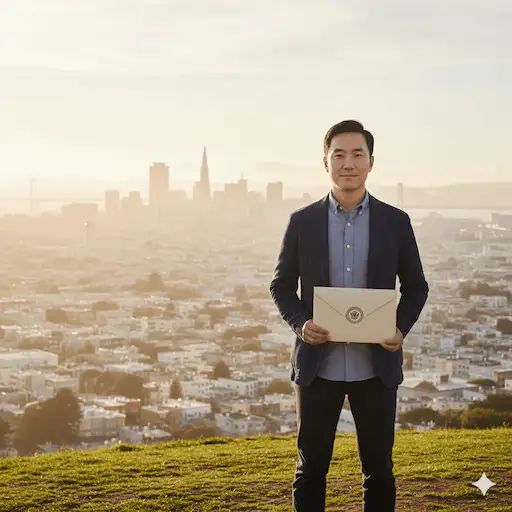
Building Roots. After years of temporary visas, my company formally sponsored my Green Card application. Filing the I-140 petition was a significant step towards permanence. The process is famously long and complex, a mountain of paperwork that represents a decade of my life and work.
While the wait continues, starting this process has provided a new sense of stability. It's the ability to think about the future in terms of years, not just in visa renewal cycles. It's the hope of finally being able to call this place "home" without an expiration date attached.
Key Projects
Stanford Hackathon Win (Nov 26, 2016)
"Project Atlas". During my master's, I joined a 36-hour hackathon with three classmates I'd barely spoken to. Our idea was ambitious: a tool to map the spread of misinformation on social media using network analysis. We powered through two sleepless nights, fueled by cold pizza and a shared, frantic energy. My role was to build the data visualization engine.
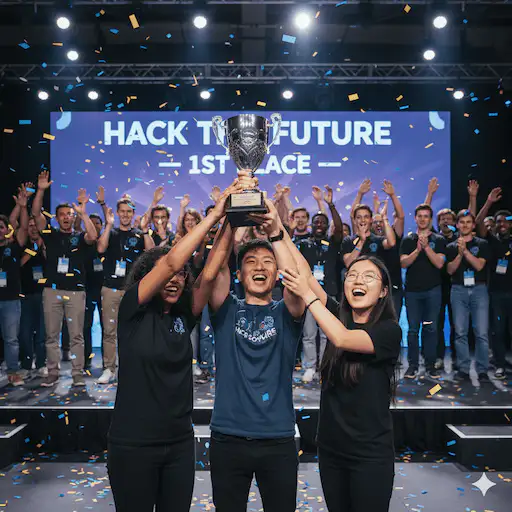
Against all odds, we won. Presenting our functioning prototype to a panel of Silicon Valley veterans and seeing their genuine excitement was a massive confidence boost. More importantly, it taught me the power of intense, short-burst collaboration. We started as strangers and ended as a cohesive team with a winning product. It was a microcosm of the Silicon Valley ethos.
Project Chimera (Jan 10, 2022 - Dec 22, 2023)
Lead Developer. Project Chimera was our moonshot—an attempt to build a multi-modal AI that could understand text, images, and audio simultaneously. As the lead, the pressure was immense. We hit a major roadblock six months in when our models refused to converge. The data pipelines were a mess, and morale was low.

The breakthrough came during a late-night session when we realized a fundamental flaw in our data normalization process. It was a painstaking fix, but it worked. Taking Chimera from a theoretical concept to a successful internal launch was the highlight of my career. It solidified my belief that the toughest challenges are overcome with persistence and a truly collaborative team.
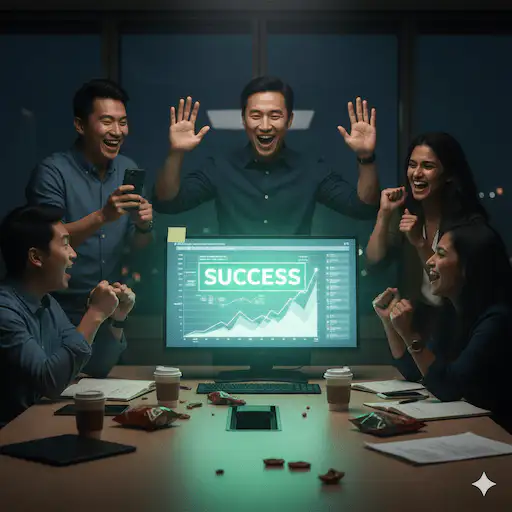
Skills Development
Mastering Public Speaking (Feb 14, 2021 - now)
Finding My Voice. As an engineer, I was comfortable speaking the language of code, but not the language of people. To grow as a leader, I knew I had to fix that. I joined a local Toastmasters club, and my first speech was a nerve-wracking disaster. I read from my notes, my voice shook, and I hid behind the podium barely made eye contact.
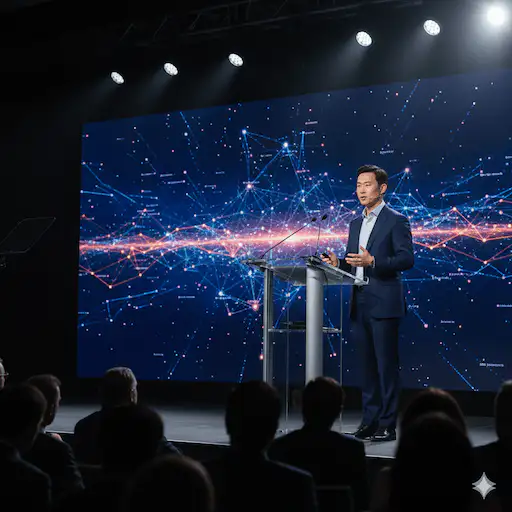
But I kept going back. Week after week, I practiced, received feedback, and learned to structure a narrative. It was like debugging a program, but the program was me. A year later, I presented a technical deep-dive to over 200 people at a company all-hands. I was still nervous, but I was in control. It was a skill I had to grind for, and I'm prouder of it than any of my natural talents.
Learning Product Strategy (Sep 25, 2023 - now)
Thinking Beyond the Code. As a senior engineer, I realized that building a feature perfectly was useless if it wasn't the right feature to build. I wanted to understand the "why" behind our work. I started having coffee with our product managers, reading books on product strategy, and even taking an online course in my spare time.

Core Learnings:
Start with the user's pain point.
Define success metrics before writing a line of code.
A roadmap is a strategic document, not just a list of features.
This has fundamentally changed how I approach my work. It's about shifting my perspective from a builder to a problem-solver, and it's essential for my goal of one day leading an entire product division.
Health & Wellness
The Runner's Discipline (May 07, 2022 - now)
Marathon Training. The intensity of my job demanded an equally intense release. I started running to clear my head, but it soon became an obsession. The discipline of waking up at 5 AM for a cold, foggy run along the Embarcadero taught me a new form of mental toughness.
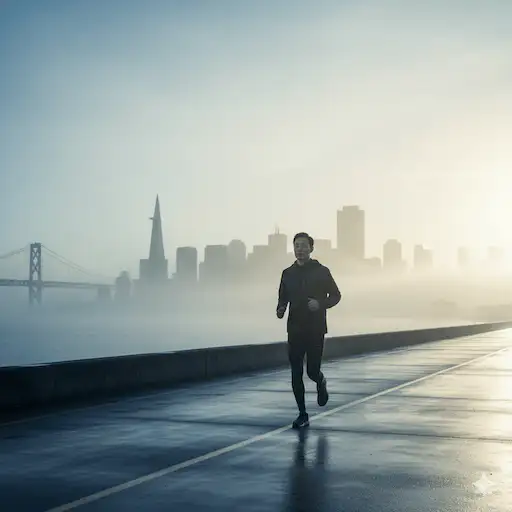
There are days I hate it, but pushing through that wall, feeling my lungs burn and my legs ache, brings a clarity that nothing else can. Completing my first half-marathon, and seeing the Bay Bridge emerge from the morning mist as I crossed the finish line, was a powerful reminder that I'm capable of more than I think.
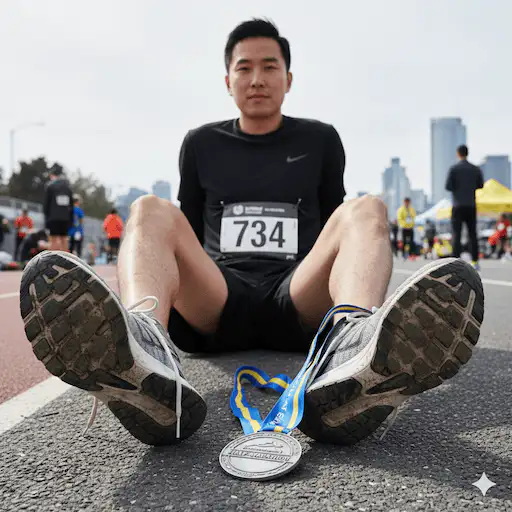
The Practice of Stillness (Jan 15, 2021 - now)
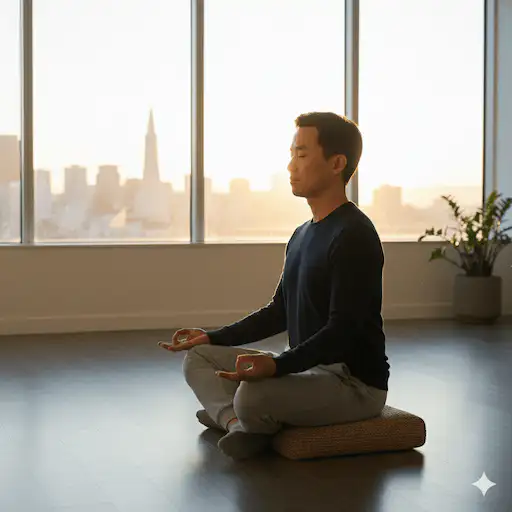
Daily Meditation. The pressure of a high-stakes career can be overwhelming. I started a daily meditation practice using the Headspace app to improve my focus and maintain mental clarity. It felt strange and difficult at first; my mind wouldn't stop racing.
But I stuck with it. Now, those ten minutes every morning are non-negotiable. It's a mental reset that helps me approach the day's problems with calmness instead of anxiety. When a critical system goes down at work, I notice I'm able to think more clearly and logically, a direct result of this practice of finding stillness amidst the chaos.
Hobbies & Passions
Urban Photography (Sep 06, 2018 - now)
Capturing the City. I bought my first real camera to capture the beauty of California. Photography provides a creative outlet and encourages me to explore new places, seeing the world through a different lens—focusing on light, shadow, and composition. It forces me to slow down and observe.
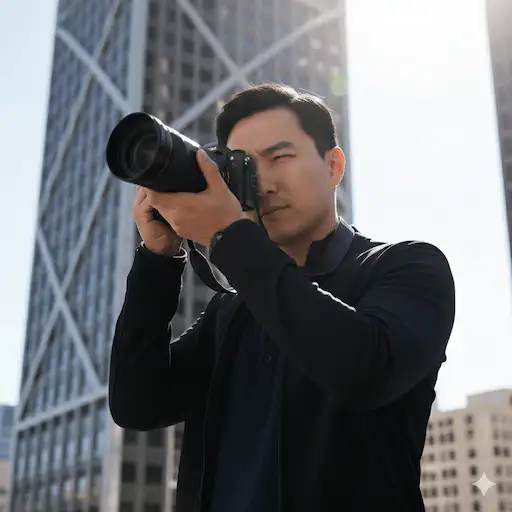
It's a form of mindfulness for me. Whether I'm capturing the geometric patterns of a skyscraper downtown or the way light hits the waves at Ocean Beach, it's a way of telling the story of my new home, and my place within it.
The Taste of Home (Mar 20, 2020 - now)
Mastering Sichuan Cuisine. During the pandemic, I felt a profound sense of homesickness. To connect with my roots, I started calling my grandmother and asking her to teach me the family recipes over video chat. Learning to cook the dishes she used to make, like Mapo Tofu and Dan Dan Noodles, became my weekend therapy.
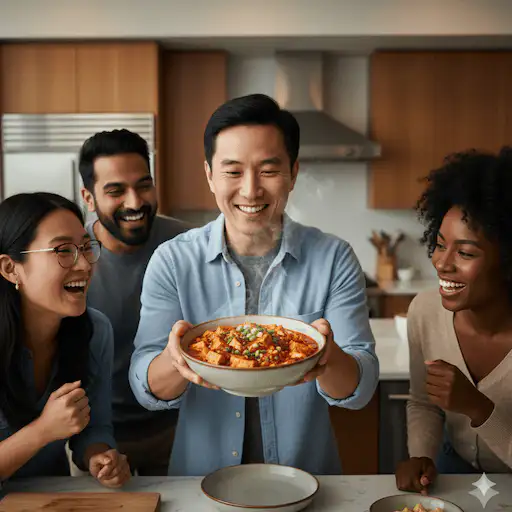
The complex balance of flavors in Sichuan cooking—the "málà" (numbing and spicy)—is a challenge to get right. It's a craft. Now, hosting dinner parties and sharing this food with my friends here in San Francisco is how I share a part of myself and my culture.
Finance & Future Planning
Building a Portfolio (Jan 20, 2018 - now)
Investing for the Long Term. With my first stable income, I made a commitment to financial discipline. I started devouring books and podcasts about investing, building a long-term portfolio focused on tech ETFs and index funds. This wasn't about getting rich quick; it was about playing the long game. For me, financial independence is the ultimate freedom. It's the freedom to one day take a risk on a startup, to support my family, or to simply work on projects I love without worrying about a paycheck. It's a strategic game, much like Go, and I'm building my position one move at a time.
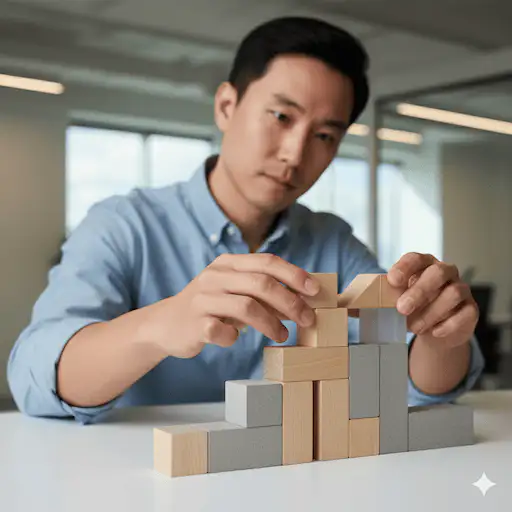
Planning for Parents' Future (Feb 20, 2021 - now)
Giving Back. My parents sacrificed a great deal to give me the opportunities I've had. Now that I'm in a position to do so, one of my most important financial goals is to support them in their retirement. This involves more than just sending money home.
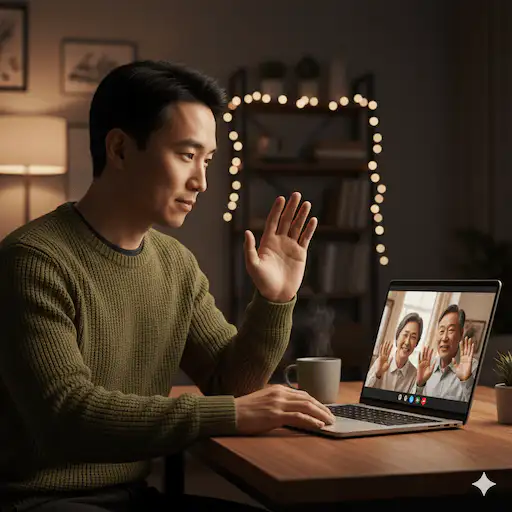
I've been working with a financial planner to set up a long-term care and investment plan for them. It's my way of showing my gratitude and ensuring they can enjoy their later years with security and without worry. This goal is a primary motivator for all my professional and financial efforts.
Relationships & Connections
The Mentor's Guidance (Oct 04, 2017 - Oct 02, 2020)

Learning from Dr. Evelyn Reed. I was fortunate to be mentored by a senior director at my company. She was a brilliant engineer who had navigated the ranks of Silicon Valley for decades. She taught me how to handle difficult conversations, how to advocate for my projects, and how to see the "political" landscape of a large corporation. One piece of advice she gave me will always stick with me:
Your technical skills get you in the door, but your communication skills decide which room you'll end up in.
Her guidance was invaluable and accelerated my growth in ways I couldn't have achieved on my own.
My "Stateside" Family (May 04, 2018 - now)
Building a New Community. Moving to a new country can be incredibly lonely. For the first year, my life was almost entirely work and study. I eventually found my community through shared interests:
A local running club.
A weekend photography meetup.
Former colleagues who became close friends.
These are the people who have become my chosen family in the US. We celebrate holidays like Thanksgiving together, support each other through career challenges, and explore the beauty of California on weekend road trips. They are my safety net and a vital part of my happiness and sense of belonging so far from home.

